Some foods are as powerful as drugs in terms of the effects they have on the body, and some foods interact with medications, inhibiting or enhancing their effects. So in addition to having powerful, healthful benefits for the body, it is possible that for some people, eating seemingly healthy foods may cause unexpected problems. I will give a few examples below, but this is by no means an exhaustive list and the only way to be sure that a radical change in diet is going to be safe for you is to discuss it with your doctor. Please do this, if you have any medical issues or are on prescribed medication.
Grapefruit
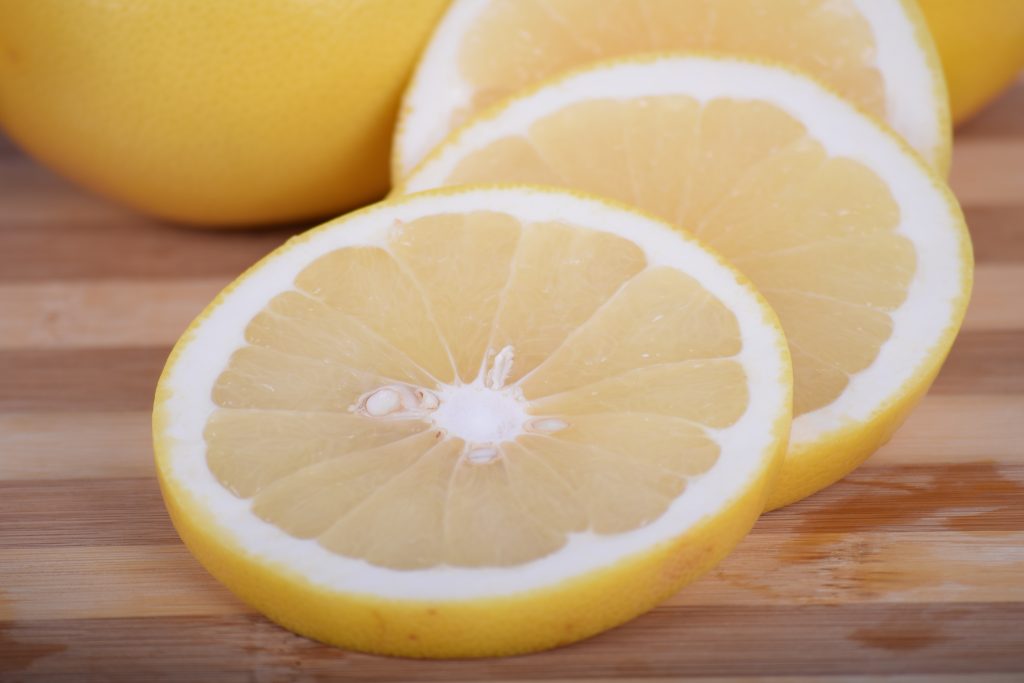
Grapefruit contains a group of chemicals known as furanocoumarins which slow down the metabolism of drugs in the body, resulting in a higher concentration of the active drug being present than there should be, for the given dose. You can read more about this issue here: https://www.nhs.uk/news/medication/prescription-drugs-and-grapefruit-a-deadly-mix/
Beetroot
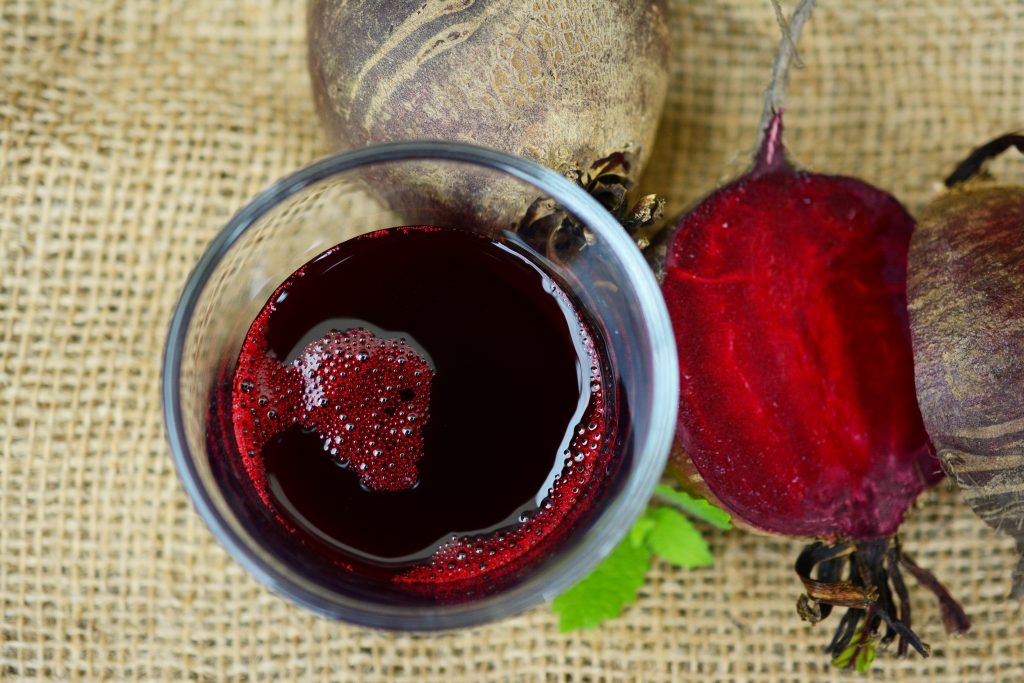
Beetroot is rich in nitrates which are converted by the body into nitric oxide. The endothelium is the lining of inner blood vessel walls, and nitric oxide plays a crucial role in sustaining normal endothelial function and therefore beetroot can be helpful in controlling high blood pressure and heart failure. A glass of beetroot juice will dilate blood vessels, lowering blood pressure quickly with effects that will last for hours. I’m sure drinking beetroot juice has saved me from a stroke on several occasions. If your blood pressure is already well controlled, or you have low blood pressure, drinking beetroot juice or eating beetroot could cause your blood pressure to drop too low, and you could become dizzy, feel faint and be unsafe to drive. My daughter felt faint after consuming beetroot as she naturally has low blood pressure and the beetroot caused it to drop even lower. If you have high or low blood pressure, I hope you monitor it yourself at home regularly with a blood pressure monitor. As well as being able to avert a crisis you will be able to see exactly how your body responds to beetroot. I used to have blood pressure that would randomly spike to levels over 200 systolic (I think the highest I saw it, was 230). My doctor told me that the anti-inflammatory drugs I needed to take to control the pain from Rheumatoid Arthritis were responsible for the difficulty in controlling my blood pressure. I was on four blood pressure medications to try and control it but still found it necessary to keep a supply of long-life beetroot juice in stock so I could drink a glass when my blood pressure would suddenly surge to the point I was at imminent risk of a stroke. A glass of beetroot juice would bring my blood pressure down to safer levels quicker than it would have taken to get an ambulance, be taken to a hospital and then get treated. I no longer need the anti-inflammatories, and consequently, the extremely high blood pressure spikes don’t happen anymore, so I don’t drink beetroot juice now, but I do still eat beetroot, though not regularly enough for it to have any meaningful impact on maintaining healthy blood pressure levels.
Note: I know how beetroot works for me because I’ve experimented with it on numerous occasions and monitored my blood pressure as I’m using it. Don’t use my experience to put off getting medical help if you need it. Experiment with beetroot and monitor yourself before, during and after consuming it to know how your body will respond to it. Do this when you are not in a crisis situation.
Garlic
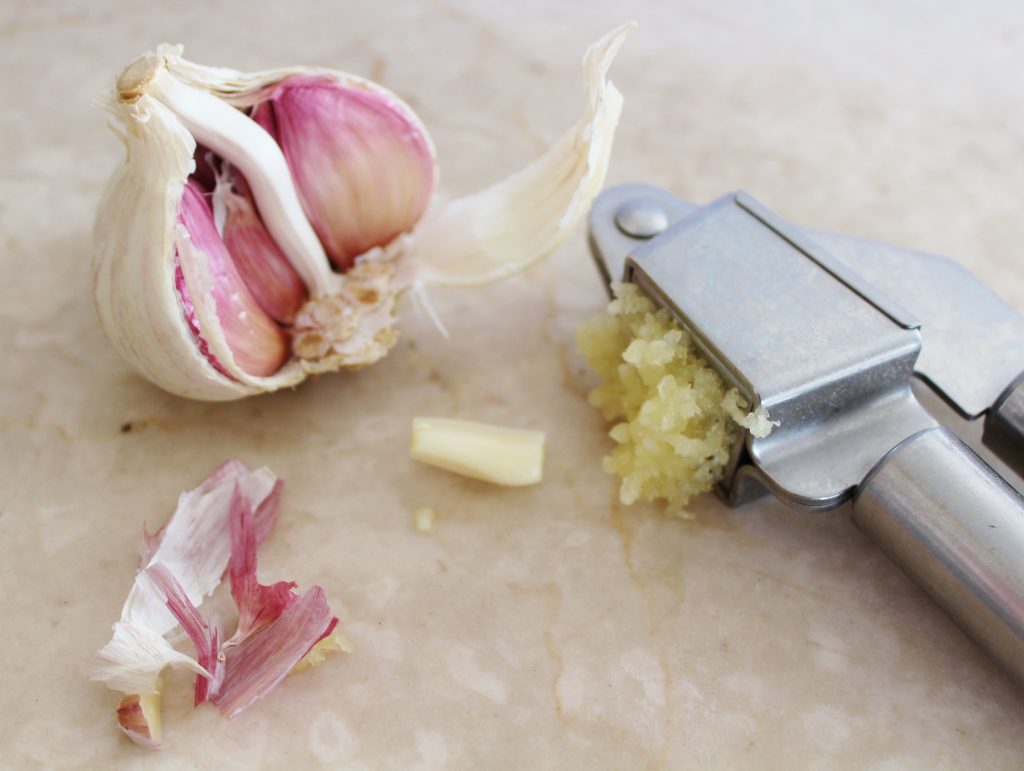
Garlic has anticoagulant properties, and this has the effect of lowering blood pressure. The same concerns as with beetroot apply, but with an additional point to consider; if you are prescribed anticoagulants, commonly known as ‘blood thinners’, and also consume a lot of garlic, then it will be as though you’re taking a higher dose of anticoagulant. I would imagine this would only be an issue if you are eating a lot of garlic, or consuming a garlic tablet, which has a concentrated amount of the active chemical allicin, but it’s probably better to play it safe and avoid consuming a lot of garlic if you’re on this class of drug.
Garlic works incredibly well as an insect repellent if eaten, and I use garlic tablets for this purpose. You will reek of garlic, repel your friends and family as well as the insects, no one will want to kiss you, but hey at least you won’t be an itchy mass of swollen pink welts.
Brassicas
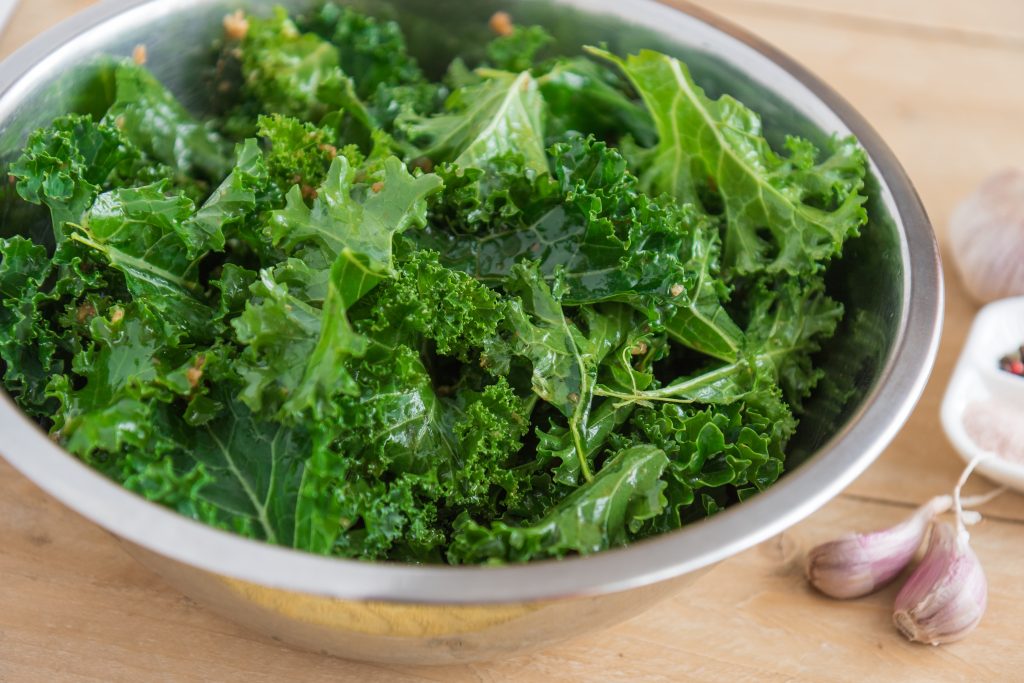
Brassicas are the dark leafy green vegetables and cruciferous vegetables like cauliflower, broccoli and Brussels sprouts. These powerhouses of dense nutrition can cause a problem for people whose kidneys are compromised, because of the high amounts of minerals they contain. Under normal circumstances, you couldn’t overdose on minerals by eating healthy foods like brassicas, as your kidneys would be getting rid of the excess minerals. If your kidneys are not functioning properly, (and I’m sure you would know this if this is you, and you will have been instructed about eating fruit and vegetables by your doctor), then minerals can build up to toxic levels. If your kidneys are working well, you couldn’t shove the green leafy vegetables in fast enough to kill yourself through mineral poisoning. If you have kidney disease, you absolutely must follow your doctor’s dietary advice about consuming fruit and vegetables.
Brassicas also contain high levels of nitrates, dilating arteries and lowering blood pressure. Regular intake of dark leafy greens throughout the day is an essential part of Caldwell Esselstyn’s program for heart patients as it keeps blood vessels dilated and the endothelium healthy.
Brassicas also contain alkaloids which could potentially harm you if you keep consuming the same ones all the time. The most well-known issue is with changes to hormone levels in the thyroid. If you’re eating a lot of greens then it’s best to play it safe and rotate them, eating different ones each day, so you don’t get a build up of particular alkaloids. Pay special attention to this if you are juicing greens and therefore consuming a massive amount of them. That said, don’t lose sleep over it; I went on a broccoli bender that lasted weeks and lived to tell the tale. If you have a thyroid condition, I would suggest not consuming excessive amounts of greens to avoid any potential interaction with your medications or causing further disruption of your thyroid hormones. Hypothetically, it might be possible to improve your thyroid condition by consuming certain greens, if the consumption of those greens happens to alter your hormone levels in a way that is beneficial for you. You would have to do your own careful research to work out what would be right for you in that case.
Legumes
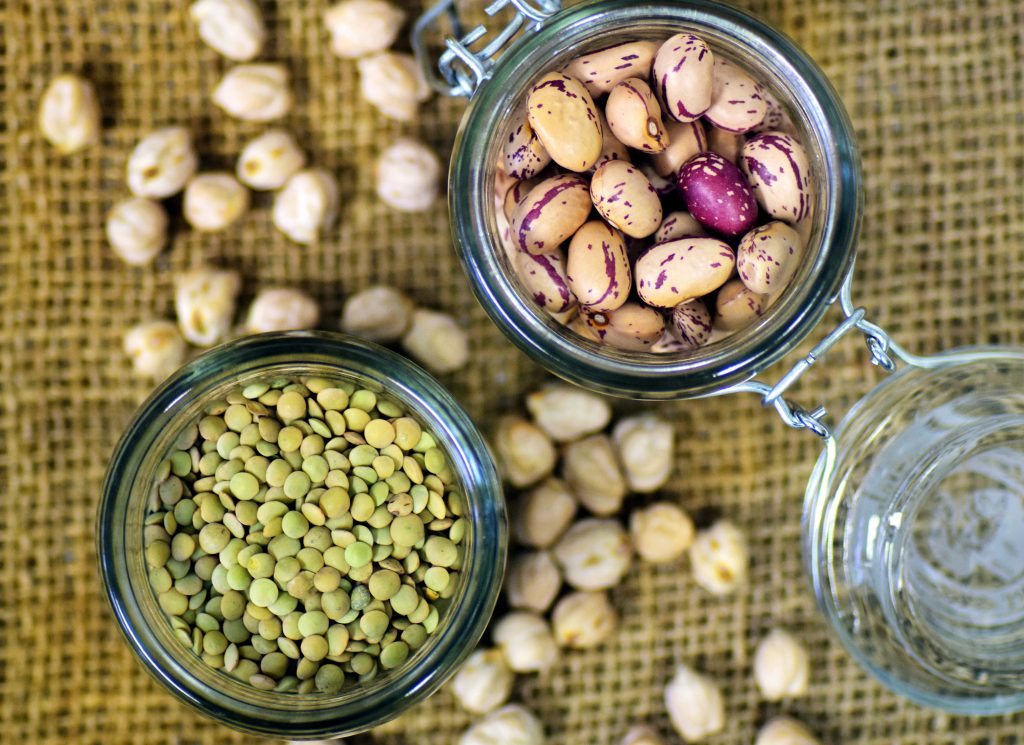
Legumes (beans of all kinds) contain proteins called lectins. These are toxic, and if the legumes aren’t cooked properly, some will remain in the bean at the point of eating it, causing digestive problems which can be severe for some people. Lectins are eliminated by pressure-cooking or commercial canning. Slow-cooking, soaking and sprouting do not destroy all the lectins, so if you are going to eat legumes, pressure-cook them, buy canned, or sprout them and then cook them. You can cook them on the stove in a regular pan, but rapidly boil them for at least the first 10 minutes of the cooking time, and cook for the full amount of time recommended for the particular legume you’re using, to be sure of minimising the risk from lectins.
Turmeric
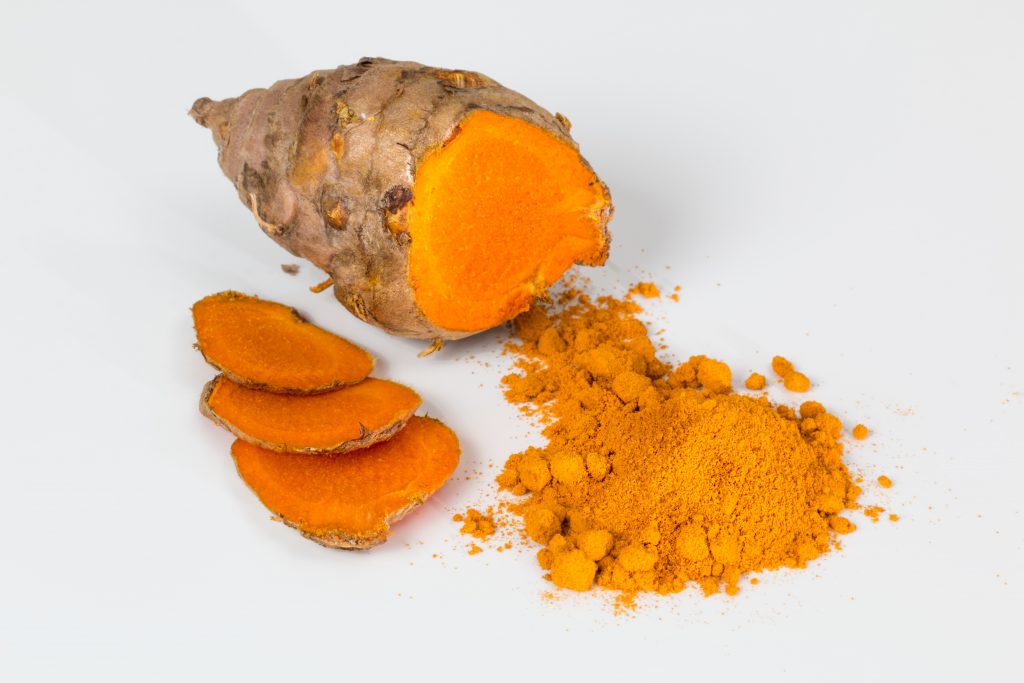
Turmeric, a spice commonly used in Indian cooking, contains a chemical called curcumin which is a powerful anti-inflammatory and has numerous anecdotal reports of anti-cancer properties and one documented case in the UK of a woman recovering from myeloma using curcumin supplements: https://casereports.bmj.com/content/2017/bcr-2016-218148. Curcumin is fat soluble, so you need to consume it with fat, and also with freshly ground black pepper, which contains piperine. Piperine significantly enhances curcumin absorption in the body. Not all turmerics have the same percentage of curcumin in them, so go for quality over price when shopping.
Starchy Foods
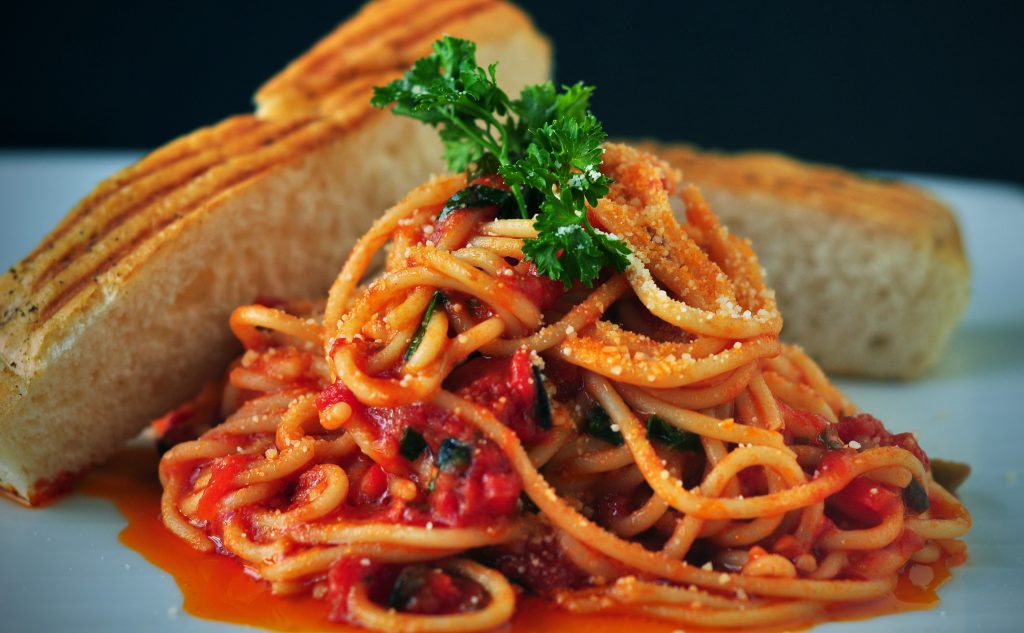
Starchy foods such as rice, potatoes, pasta, pastry and bread all raise blood glucose levels significantly as they turn to sugar in the body during digestion. So while a jacket potato itself may only contain just over a gram of actual sugar (fructose), after digestion, all the starch has been turned into the equivalent of 19 teaspoons of sugar – that’s like two cans of coke, or one whole bag of candy floss (cotton candy). If you are insulin resistant or type 2 diabetic, just cutting out the starches from your diet may be enough to control your blood sugar, get rid of all oedema from your body, clear your foggy brain, sharpen your vision, give you more energy, and make life more enjoyable again. If you are type 2 diabetic and don’t get rid of the starchy food, and are unable to lose your excess visceral fat (fat on the inside, around your organs), then you can look forward to a life of more and more toxic medication, blindness, amputations, severe brain fog, confusion and an early death due to stroke or heart attack. Starchy foods are comfort foods and I know it’s hard to do without, but eliminating them from your diet, if you have metabolic disease, is more powerful than any medication.
Extra Virgin Olive Oil
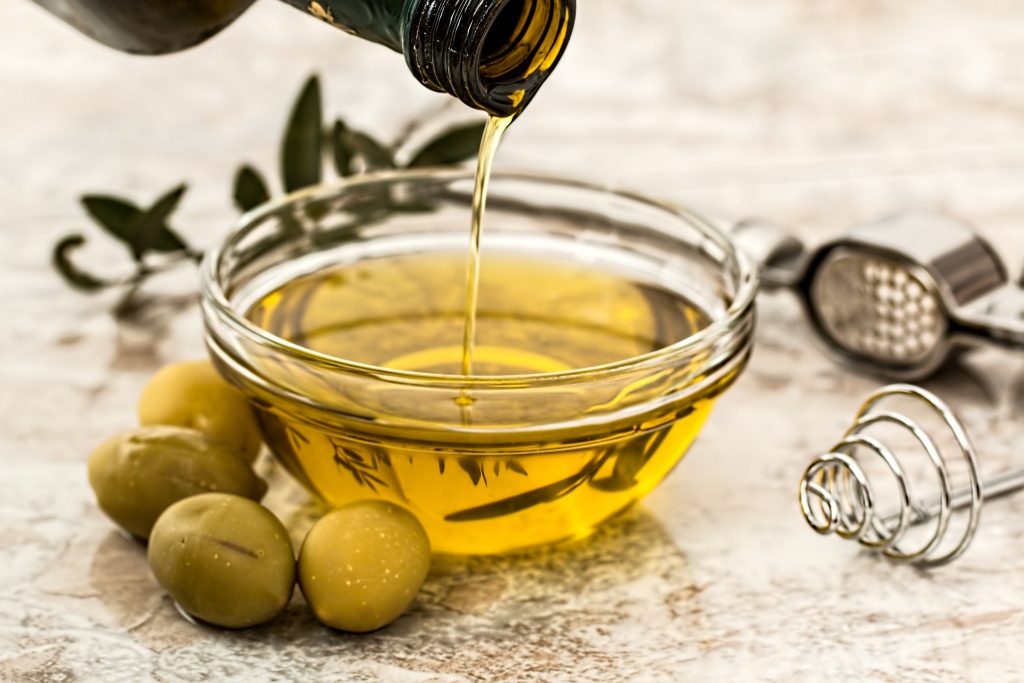
Extra virgin olive oil is good for you. Anyone familiar with the plant-based mantra ‘NO OIL!’ will think I am out of my mind at this point (to be fair my comments about starchy foods – ‘podaydas’ will have already got their backs up I’m sure). But the fact is, there is a substantial amount of good science indicating that far from being inflammatory and damaging to the endothelium, extra virgin olive oil is anti-inflammatory, healing and cuts heart attack risk. One of the studies showed an almost 12% drop in cardiovascular risk with consuming extra virgin olive oil and a nearly 24% drop in cardiovascular risk by consuming nuts, in both cases this was additional to a Mediterranean diet: https://www.nejm.org/doi/10.1056/NEJMoa1200303 This study is just one of many touting the benefits of extra virgin olive oil, so have a google around and look at other peer-reviewed studies.
Nuts
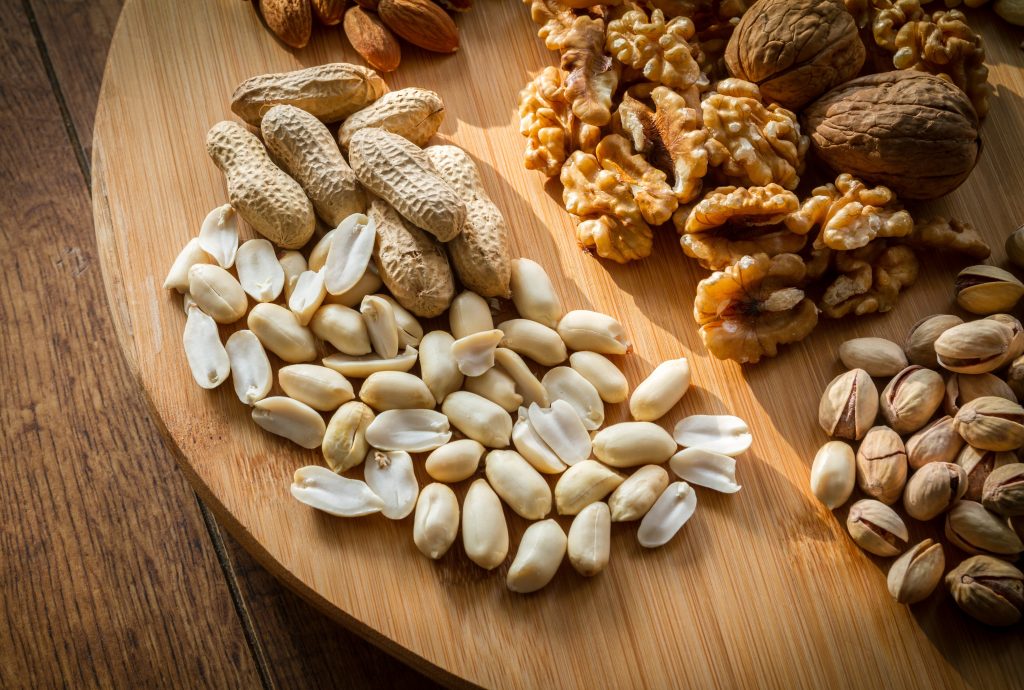
Nuts, as shown in the study above are excellent for cardiovascular health. Combine them with extra virgin olive oil, a low starch diet, regular exercise, and de-stressing activities such as meditation, and you are well on your way to avoiding future cardiovascular disease or improving your condition if you already have it.